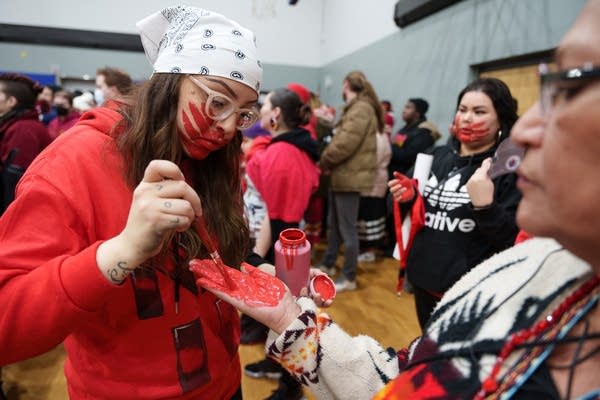Minneapolis, Bemidji rallies advocate for missing, murdered Indigenous people

Dani Blue, of Red Lake Nation, holds up her hand as it is painted red before a Missing and Murdered Indigenous Relatives March in South Minneapolis on Tuesday. Marking one’s face and mouth with red handprint symbolizes the MMIW movement and the countless women who have been silenced by violence.
Tim Evans for MPR News
Go Deeper.
Create an account or log in to save stories.
Like this?
Thanks for liking this story! We have added it to a list of your favorite stories.


